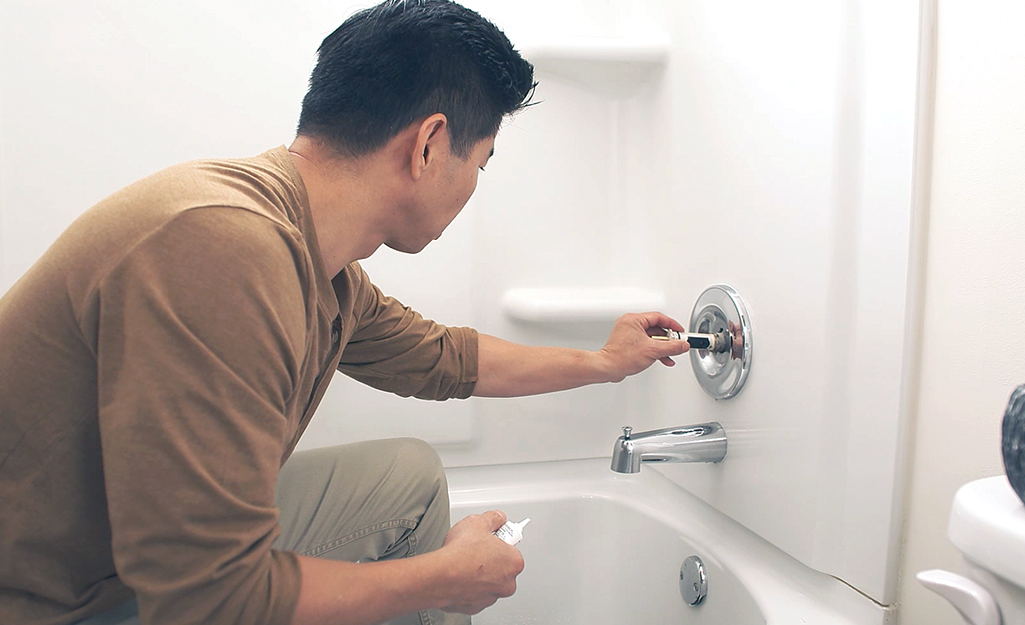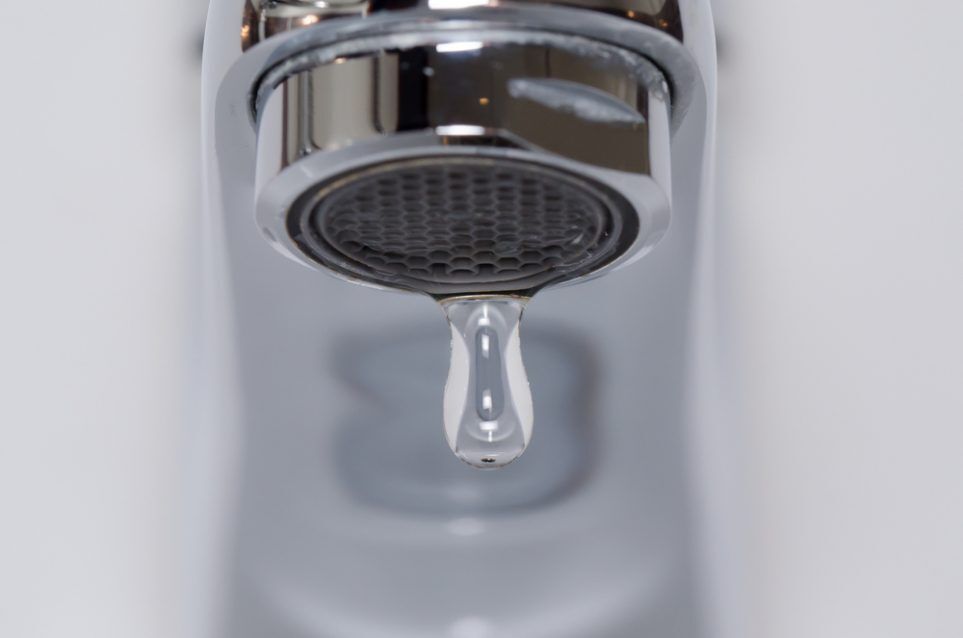What It's Necessary to Correct a Broken Faucet
What It's Necessary to Correct a Broken Faucet
Blog Article
Just how do you really feel when it comes to Why It's Important to Fix Leaky Faucets?

Trickling faucets may seem like a minor aggravation, but their effect exceeds just the aggravation of the noise. From wasting water to sustaining unnecessary monetary prices and health and wellness risks, neglecting a trickling faucet can cause various effects. In this post, we'll delve into why it's essential to resolve this typical family issue without delay and efficiently.
Wastefulness of Water
Environmental Effect
Trickling taps contribute substantially to water wastefulness. According to the Environmental Protection Agency (EPA), a single tap trickling at one drip per second can squander greater than 3,000 gallons of water each year. This not only pressures water resources but also impacts ecological communities and wild animals based on them.
Step-by-Step Overview to Dealing With a Dripping Tap
Devices Needed
Prior to attempting to repair a trickling tap, collect the needed tools, including an adjustable wrench, screwdrivers, substitute parts (such as washing machines or cartridges), and plumber's tape.
Usual Tap Issues and Their Solutions
Determine the type of tap and the particular problem triggering the drip. Common troubles include damaged washers, corroded shutoff seats, or damaged O-rings. Describe manufacturer guidelines or on the internet tutorials for detailed support on repair services.
Financial Costs
Boosted Water Bills
Past the environmental influence, dripping faucets can inflate water costs considerably. The accumulated waste over time equates into higher energy expenses, which can have been prevented with prompt repairs.
Prospective Home Damage
Additionally, long term trickling can lead to harm to components and surface areas bordering the tap. Water buildup can create discoloration, rust, and even structural issues if left neglected, causing extra repair prices.
Wellness Worries
Mold and Mildew Development
The continuous presence of dampness from a leaking faucet develops a suitable environment for mold and mildew and mildew growth. These fungis not only endanger indoor air top quality however additionally position wellness risks, specifically for people with respiratory conditions or allergic reactions.
Waterborne Diseases
Stagnant water in leaking taps can come to be a breeding ground for germs and various other virus, increasing the danger of waterborne illness. Impurities such as Legionella microorganisms thrive in stagnant water, possibly bring about serious illnesses when ingested or inhaled.
Do it yourself vs. Professional Repair work
Pros and Cons of DIY Repair
While some might try to deal with a trickling tap themselves, DIY repair work include their very own set of obstacles. Without proper expertise and tools, DIY attempts can aggravate the issue or bring about insufficient repairs, prolonging the issue.
Benefits of Hiring a Professional Plumber
Hiring a specialist plumber guarantees that the underlying cause of the trickling faucet is attended to efficiently. Plumbings have the knowledge and tools to diagnose and repair tap concerns efficiently, saving time and lessening the threat of further damage.
Environmental Obligation
Specific Contribution to Conservation
Taking responsibility for repairing leaking faucets lines up with wider efforts toward water conservation and environmental sustainability. Every individual's actions jointly make a substantial influence on maintaining precious resources.
Lasting Living Practices
By focusing on timely repair work and adopting water-saving behaviors, people contribute to lasting living methods that benefit both existing and future generations.
Preventive Measures
Normal Upkeep Tips
To avoid dripping taps, carry out regular maintenance such as cleansing aerators, examining for leakages, and replacing damaged parts without delay. Additionally, take into consideration installing water-saving gadgets or upgrading to a lot more efficient fixtures.
Relevance of Prompt Repair Works
Attending to trickling faucets as quickly as they're seen prevents additional water waste and possible damages, inevitably conserving both water and cash over time.
Effect On Residential Or Commercial Property Value
Perception of Well-Maintained Home
Preserving a building in good condition, consisting of resolving maintenance concerns like trickling faucets, boosts its perceived worth and desirability amongst possible buyers or tenants.
Impact on Resale Value
Properties with properly maintained plumbing fixtures, consisting of faucets, command greater resale worths in the property market. Resolving dripping faucets can add to a positive impression throughout home examinations and negotiations.
Conclusion
Resolving a leaking faucet exceeds mere benefit; it's a crucial step towards preserving water, decreasing economic prices, and safeguarding health and home. Whether with DIY repair services or expert help, acting to take care of leaking faucets is a small yet impactful way to advertise liable stewardship of resources and contribute to a much healthier, extra lasting future.
How to Fix a Leaky Faucet: Step-by-Step Repair Guide
A leaky faucet may seem like a simple annoyance, but if it's not fixed promptly, that leak could cost hundreds to potentially thousands. From water damage to mold, mildew, and high water bills, even a tiny leak can be catastrophic if left unattended. Damage like this can even affect the overall value of your home, so it's important to take the right approach for leaky faucet repair. You may need the help of a plumber in some cases, but we've got a few tips you can try on how to fix a leaky faucet before calling the pros.
Four Faucet Types
When you're learning how to fix a leaky faucet, the first step is knowing what kind of faucet you're working with! There are four common types.
Cartridge Faucets
Cartridge faucets come in one- or two-handled varieties. In one-handled cartridge faucets, hot and cold water combines in a single cartridge. In the two-handled versions, hot and cold water are controlled separately and mixed in the faucet.
Ball Faucets
Ball faucets have a single lever you push up and down to adjust the pressure and rotate to change the temperature. A slotted metal ball controls the amount of water allowed into the spout.
Compression Washer Faucets
They're the oldest type of faucet, but they're still used in many homes — especially older ones. Compression faucets have two separate handles that, when turned, raise or lower the washer that seals a water valve. This valve stops water from flowing through the faucet when it is turned off.
Disc Faucets
Disc faucets rarely need to be repaired due to their maintenance-free design. The water flow is controlled by two discs — the upper one raises and lowers against a fixed lower disc, creating a watertight seal. If your disc faucet starts leaking, you may need to replace the seals or clean residue buildup from the inlets.
Fixing a Leaky Faucet
Step 1: Turn Off the Water
Whether you're learning how to fix a leaky bathtub faucet or how to fix a leaky kitchen faucet, always turn off the water supply to your working area when you're fixing a leak. The last thing you want is a flood added to your list of things to fix.
Look for the shutoff valves below your sink or around the tub and turn them clockwise to stop the water flow. If your faucet doesn't have shutoff valves, you may need to turn off the water for the whole house. Check to make sure it's off by turning the faucet on. If nothing comes out, you're ready to start the repair.
Step 2: Take Apart the Faucet
How you disassemble your faucet depends on the type of fixture you have. You can use a flathead screwdriver to remove the caps on top of the handle or handles for cartridge and compression faucets. Inside, you should see handle screws. Unscrew these with a screwdriver to remove the handle.
Disc- and ball-style faucets will typically have an inlet screw near the handle, and removing that will reveal the interior of the faucet.
Detach the Valve Stem
For cartridge- and compression-style faucets, you'll see the inner valve stem or cartridge once you remove the faucet handles. If you have a compression faucet, unscrew the brass valve stem. If you have a cartridge faucet, pull out the cartridge. If your cartridge has been in place for a while, it may require some tools or extra force to remove it due to mineral deposits.
Examine and Replace Parts
Once you've removed the parts, check them out to confirm what needs to be replaced. You may see corroded rubber washers, O-rings, stems, or cartridges. On a ball-style faucet, check the seats and springs for damage.
If you need to repair a leaky disc faucet, check the inlet and seals on the lower disc.
Once you determine what parts must be replaced, visit your local hardware store. Bring the damaged parts with you to ensure you can purchase the correct components to replace them.
Clean Valves and Faucet Cavity
If you've removed a stem or cartridge, you may notice mineral buildup in the faucet's threads. Use white vinegar to clean the valve seat by soaking it for a few minutes, then scrub it away with a soft toothbrush and rinse with warm water. You can also clean the interior of the faucet in the same way.
Reassemble the Faucet
Once your faucet is cleaned and the required parts have been replaced, it's time to reassemble it. Put the pieces back together and slowly turn the water supply back on. Doing this slowly is crucial because too much initial water pressure can damage the new hardware you've just installed.
https://homewarranty.firstam.com/blog/how-to-fix-leaky-faucet

We are very enthusiastic about How to Fix a Dripping or Leaky Faucet and I am assuming you enjoyed reading the entire post. Be sure to set aside a second to distribute this page if you enjoyed reading it. Kudos for your time. Revisit us soon.
Report this page